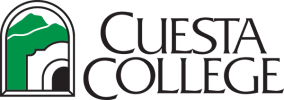
Program Summary
NUTRITION EDUCATION/COACHING - Certificate of Achievement
The Cuesta College Nutrition certificate program offers students a variety of interesting and challenging courses for students to learn about chemicals and nutrients in food and their effects on the human body and the world. The study of nutritional science contributes to preparing students for careers as nutritionists, registered dietitians (RD), food scientists, or other dietetics professionals. Cuesta College offers a Nutrition certificate that provides a broad foundation in a practical and personally applicable exposure to a variety of scientific areas of nutrition such as chemistry, biochemistry, microbiology, anatomy, physiology, and biology. Popular topics include microbial pathogens, environmental contaminants, nutrigenomics, macronutrient balance, energy metabolism, obesity, global issues, biochemistry of exercise, and micronutrient and phytochemical utilization. Students in the program learn how the scientific method and process contributes to nutritional requirements and how nutrients function from a cellular to more practical level, and then apply this knowledge to their own health. The program ultimately helps students understand the role of nutrition in disease prevention throughout the lifecycle and as an impact on society as a whole. Select Cuesta College Nutrition courses meet college requirements in AA GE and are offered in both face-to-face and Distance Education modalities. Select Nutrition courses are also a part of 10 degrees and certificates at Cuesta College. Students finishing this certificate will be better prepared to educate and coach peers one-on-one, give practical advice on nutrition when combined with personal training certifications, and work for community partners in nutrition education entry level jobs.